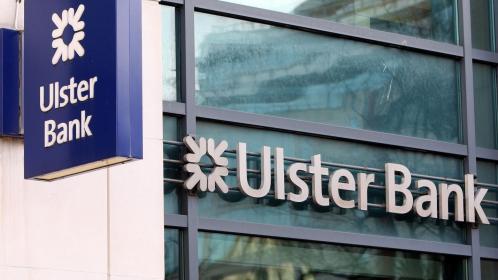
‘Up to 15 banks’ face tracker scandal rap
Fifteen banks could be facing regulatory sanctions for wrongly removing cheaper tracker mortgages from up to 15,000 customers, according to the boss of the first lender embroiled in the scandal.
“This is an industry-wide issue,” said Jeremy Masding, the chief executive of Permanent TSB. “I expect sanctions against all banks involved.”
The prospect of sanctions could be especially damaging for AIB, which the state hopes to begin returning to private ownership in the coming weeks by floating a 25% stake in Dublin and London.
AIB has admitted that up to 3,000 customers may have been overcharged. The bank has set aside €190m to cover interest refunds, compensation and the administrative costs of identifying those entitled to redress.
Under its administrative sanctions procedure, the Central Bank of Ireland has the power to impose fines of up to €10m. The regulator said it had yet to determine how many banks could face sanctions.
“We will use all of the supervisory and enforcement powers at our disposal,” said a Central Bank statement. “If we have to, we will take appropriate action. This is an area of high priority.”
The regulator will provide an update this week on the progress of an examination under which 15 lenders have been ordered to review their treatment of tracker customers and to put in place redress programmes for those who wrongly lost the low-cost mortgages.
In a previous update, the Central Bank said banks had identified 8,200 customers entitled to redress, although Philip Lane, the governor, has acknowledged the figure could grow to 15,000.
Ulster Bank, Permanent TSB and its former subprime lender Springboard Mortgages have admitted to enforcement action by the Central Bank. Only the Springboard case has been concluded, resulting in a fine of €4.5m arising from 222 tracker cases.
Ulster Bank has set aside €211m for its role in the tracker scandal, while Permanent TSB has estimated the cost at €140m.
The amount of redress paid to customers could be dwarfed by the costs of the massive trawl required to identify them.
Bernard Byrne, the AIB chief executive, said the bank had examined 620,000 individual mortgage contracts and identified 40 possible scenarios under which customers could have been entitled to tracker mortgages.
Of the €14m paid by Permanent TSB to KPMG last year, most related to the accountants’ work in overseeing the bank’s mortgage redress programme.
It could take until the summer before banks return tracker mortgages to all who are entitled to them. Customers will then face a further delay to learn how much their banks propose to pay them in interest refunds and compensation.
Banks will have to set up independent appeal boards for customers dissatisfied with what they have been offered.






